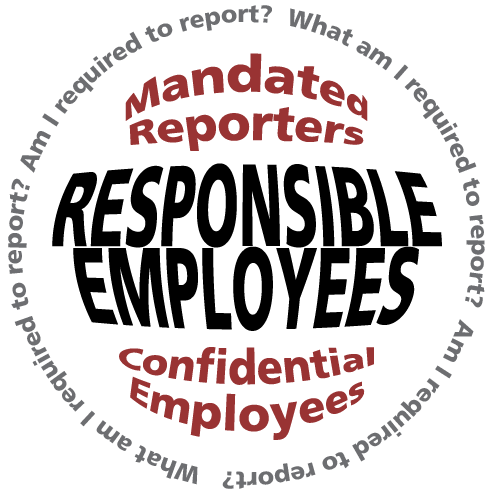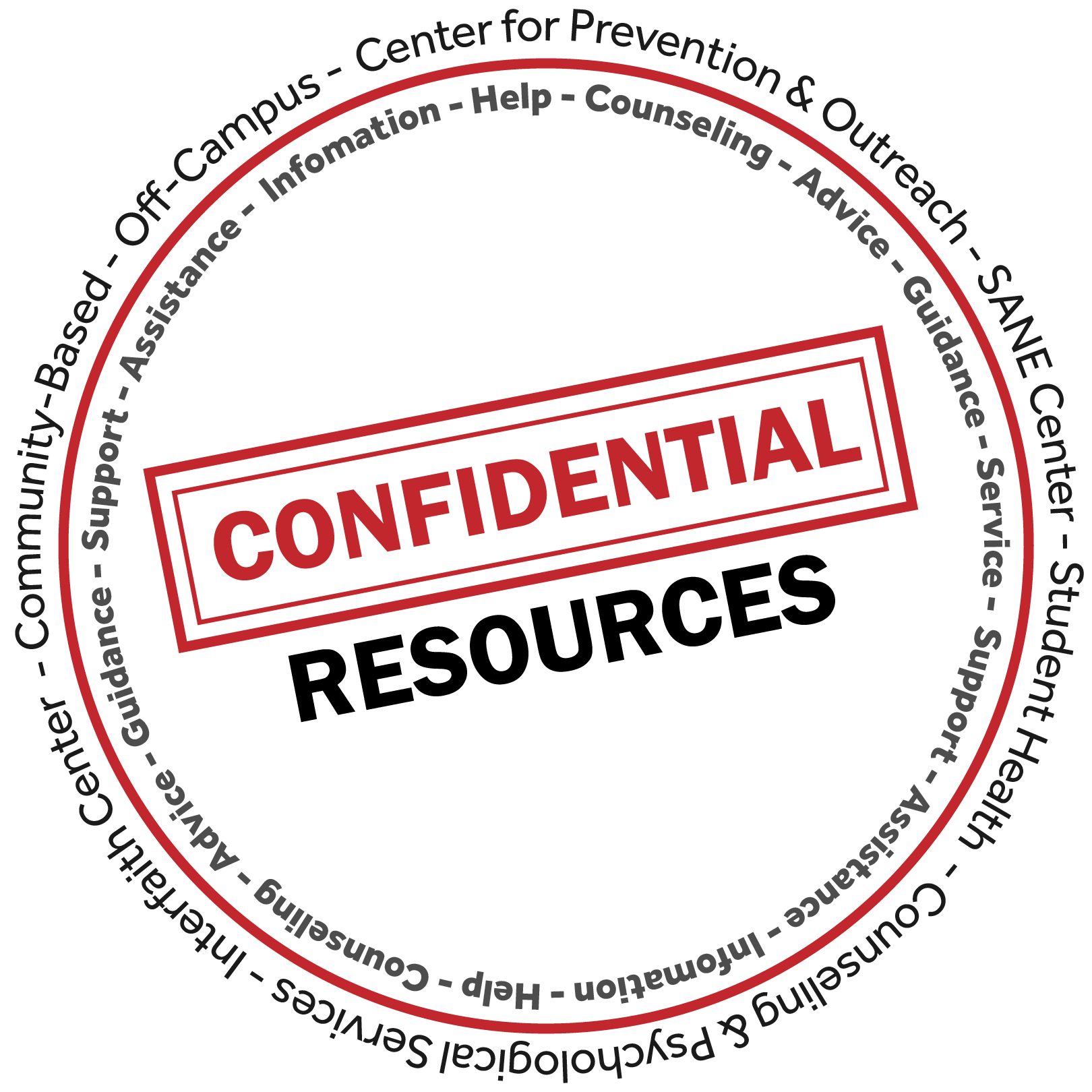
SUPPORTING OTHERS
Be Empathetic and Empowering
Being there for someone who has experienced sexual violence or is involved in an investigation, can be difficult, but it's important to know that you can make a difference by offering support and understanding. Your support can help them feel less alone and more empowered.
Supporting A Survivor
Supporting someone who has experienced sexual misconduct or violence can be a challenging and emotional experience. It's important to remember that the most important thing you can do is be there for your friend and provide them with emotional support. Remember that supporting someone who has experienced sexual violence is an ongoing process. Be prepared to offer support over time as they navigate the healing process.
Listen Actively: It's important to listen to your friend without judgment or interruption. Be empathetic but impartial. Allow them to share their experience at their own pace and in their own words. Be wary of asking too many questions or expressing stong opinions about what happened.
Believe & Validate: Sexual violence can be a traumatic experience that can be difficult for people to talk about. It's important to believe your friend and reassure them that what happened was not their fault and they did not deserve it. Do not question or express doubt regarding their account of what happened.
Provide Emotional Support: Offer emotional support by letting them know that you care about them and that you are there to support them. Offer to be there for them in whatever way they need, whether that means listening, helping them find resources, or simply being present.
Provide Information: There are many resources and support services available both on and off-campus. This may include counseling services, legal services, medical services, and advocacy. Encourage them to seek medical care and talk to a trained counselor or sexual assault advocate or navigator and when appropriate to seek legal advice. Help them find the resources they need to heal and recover.
Encourage Reporting: Reporting sexual violence can be an important step for victims in taking back control and begin the healing process. It can also ensure that your friend is safe and protected from further harm, gets access to services and support and to prevent future incidents that may impact others.
Respect Boundaries: Respect their boundaries, choices and decisions regarding their recovery. Avoid pressuring them to take actions they are not ready for or comfortable with. Let them know that you're there to support them, but also respect their decisions.
Respect Privacy: No gossiping. Part of the process of healing includes beginning to trust yourself and others again. It important that you respect their privacy of anyone involved in an incident of sexual violence either as a victim, witness or someone who has been accused.
Supporting A Witness
Sexual misconduct, especially violence, can have an detrimental and emotional impact on everyone who experiences or witnesses the incident.
Believe Them: Let them know that you believe their account of what happened. Validate their experience and let them know that it is not their fault.
Provide Emotional Support: Provide emotional support by letting them know that you care about them and that you are there to support them. Offer to listen to them and provide a safe space for them to share their thoughts and feelings.
Provide information: Provide the witness with information about resources and support services available on campus and in the community.
Respect Privacy: It is important to respect the privacy of the witness and avoid sharing their story or details of the incident with others without their permission.
Encourage Self-Care: Encourage the witness to practice self-care and engage in activities that promote their well-being, such as exercise, meditation, or spending time with loved ones.
Support the Process: It is important to support the process and allow the University or police to investigate the incident. While it is important to support the witness, it is also important to respect the rights of the survivor and the accused and allow the process to proceed.
Supporting A Respondent
It is important to approach the issue of supporting someone who has been accused of sexual violence with care and sensitivity. Remember that everyone involved in the situation, including the accused person, the accuser, and any witnesses, deserves respect and support.
No Judgement: If someone has been accused of sexual violence, they may feel isolated and vulnerable. It is important to listen to them without judgment and let them share their story.
Support Services: Encourage them to seek support from a therapist or counselor who can help them process their feelings and provide guidance on how to proceed. You can also help them find support groups or other resources that may be helpful.
Respect Privacy: It is important to respect the privacy of the person who has been accused of sexual violence. Do not share their story or details of the accusation with others without their permission.
Avoid Victim-Blaming: Avoid victim-blaming or assuming that the accusation is false without evidence. Remember that sexual violence is a serious issue, and it is important to take all accusations seriously.
Support the Process: It is important to support the process and allow the University or the police to investigate the accusation. While it is important to support the accused person, it is also important to respect the rights of the accuser and allow the process to proceed.
Educate yourself: Educate yourself about sexual violence, including the impact it can have and the importance of consent. This can help you better understand the issues at stake and provide better support.
Take Care of Yourself
Supporting a friend who has been involved in an incident of sexual violence can be a long and difficult journey. Be patient, understanding, and supportive throughout the process. Take care of yourself and seek support from others if you need it.
You have the right to make a report to University Police, local law enforcement and/or state police or choose not to report; to report the incident to the University, to be protected by the University from retaliation for reporting an incident; and to receive assistance and resources from the University.
N.Y. Educ. Law 129-B §6444
Stony Brook offices and employees who cannot guarantee confidentiality will maintain your privacy to the greatest extent possible. The information you provide to a non-confidential resource will be relayed only as necessary for the Title IX Coordinator to investigate and/or seek a resolution.
N.Y. Educ. Law § 129-B §6446
At Stony Brook University, we value all students, employees, and job candidates as unique individuals, and we welcome the variety of experiences they bring to our institution. As such, we have a strict non-discrimination policy. It is the policy of Stony Brook University not to discriminate on the basis of race, color, national origin, religion, sex, pregnancy, familial status, sexual orientation, gender identity or expression, age, genetic information, disability, protected veteran status, or any other characteristic protected by law.


 MeDICAL CARE
MeDICAL CARE

 SUPPORT SERVICES
SUPPORT SERVICES